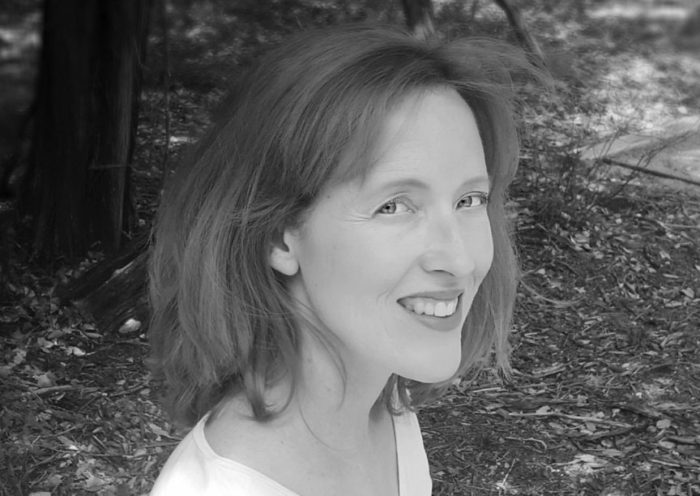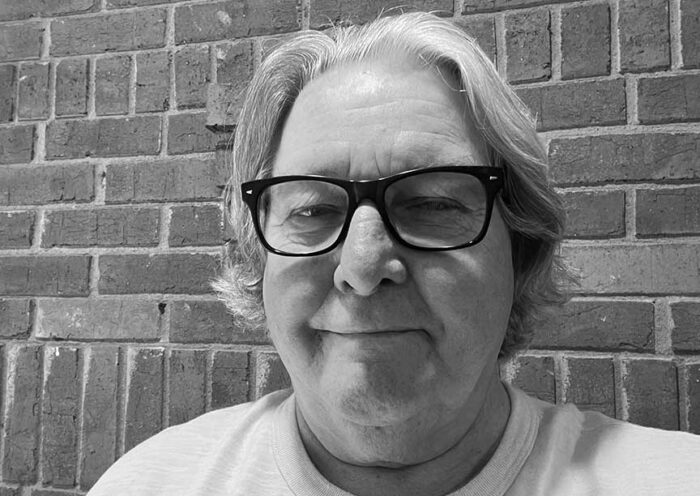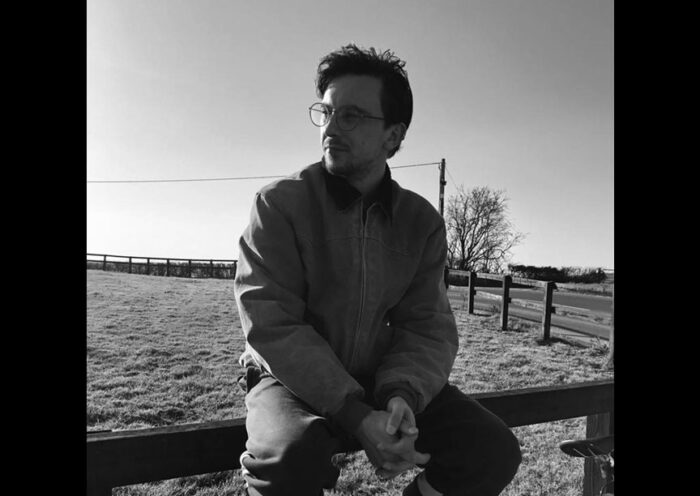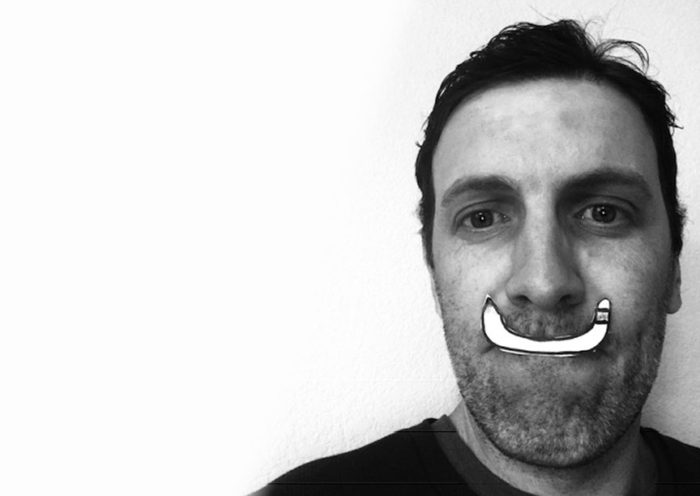Arrival
By J.T. Neill
In the winter, storms were frequent. They held the coastline to ransom. The sea that only a few months prior held waves on long leashes of refrain would wrestle with white horses that rode as far as the eye could see. It was power Islanders had understood for generations. But that was the winter. Such nights were rare in the summer, and only a particular wind, from a particular direction was able to dig down to the seabed floor. As the garden door slammed shut, she knew that that night could be one of those rare nights.
The Island awoke the following morning as if witnessing a strange and messy argument between the sea and the wind. Seaweed was thrown everywhere, small dinghies once painted as transit marks had snapped from their anchors and washed up on the beach. Pebbles that had been thrown into the sea by children returned in their droves, forming walls of rock.
Virginia Huntington was a third generation Islander and had a house on the seafront which she shared with her husband Mark and their three children. She had inherited the Victorian property when her father died and the house became the family’s bolthole to escape the city. Mark would drop by for weekends and bank holidays like a passing ship, careful not to dock and offload his worries in a place he had always felt like an outsider. Virginia had spent most of her childhood on the Island; playing in the rock pools to catch crabs, crying on the seafront when her boyfriend broke up with her, making love to Mark under the autumn stars, and a space she called her own to think.
She was up earlier than usual. She picked her ‘walking Barbour’ up off the hook in the hallway and closed the door behind her.
Down on the beach, as Virginia turned over mangled seaweed with her foot, she began to think about a problem that had been plaguing her for some time — the education of her eldest son, William. He was coming up to thirteen and Mark, single-mindedly thought the Big-Five were the only suitable suggestion, airing his frustrations as he said, ‘we’ve been over this ground before,’ annoyed that she wouldn’t see things his way. Virginia thought William was too sensitive to go to boarding school and had heard horror stories about bullying at what Mark regarded as ‘esteemed institutions.’ However, Mark controlled the money, so she knew her protestations could only go so far. She knew there were people she could talk to about it, but that would mean she had to admit she had a problem, something the Island didn’t take kindly to.
‘I may have to go back to work,’ thought Virginia.
The transience of the morning’s light hung delicately over the beach, gently bringing out its sandstone colour. Her toes had managed to dislodge a clump of seaweed attached to a rock. She kicked it to the side and headed to Friars Bay, a stretch of beach that curved round like a bent forefinger, beckoning those at sea to come ashore.
‘Morning Virginia,’ said a local resident, whose name she could never remember.
‘Morning.’
She walked past, sure to keep brooding when the Islander grabbed her by the arm.
‘I don’t suppose you’ve seen what’s further up the beach,’ said the man, as Virginia looked startled at being accosted in such a way.
Is it Simon?
‘Not yet…What do you mean? What’s further up the beach?’
‘Well, I must insist I come with you, because I came across them earlier this morning and couldn’t quite believe my eyes.’
‘Did something wash up?’
‘You could say that. It’s best if you see for yourself. If I explained, you wouldn’t believe me.’
She still felt tired, and longed more than ever to know the man’s name. She remembered the fact he had a brother named James, but then thought everyone down on the Island had a brother named James.
Was he a cousin, perhaps, of the Peridot family? Mind you most people are, I think I may even be loosely connected to them. Incestuous place this is.
They walked briskly, and the man’s dog, not wanting to be ignored, weaved between their legs, sniffing every bit of seaweed that’d come ashore.
‘It’s a little further,’ said the man.
The beach was abnormally quiet, except the excitable croon of seagulls flying above. Virginia thought perhaps she had missed some grand event that everyone else had been invited to. The seagulls dipped down to the sea’s surface, everything went quiet.
Just past eight, she said to herself, strange.
‘You see,’ said the man, bending down to pick up what he thought was a torn red jacket half buried in the sand. ‘I thought you’d be interested.’
‘A lifejacket? I don’t suppose someone was wearing that?’
‘This is nothing,’ said the man, ‘there are plenty more of these further up the beach, look I’ll show you.’
She realised she remembered his name.
‘Just behind that rock,’ said the man with an almost giddy expression.
Rupert, ah yes, his name is Rupert, thought Virginia, pleased she now remembered.
A pair of sandals were the first things to catch her sightline.
What is this?
Then a jumper, then several more lifejackets.
What are these things doing here?
Then a foot, then a leg, then a body.
Then people.
Resting against a large slab of a rock, a huddled mass with legs and arms all woven into a great knot, sat shivering. Their skin was blotchy with goosebumps the size of cysts. The tide was far out and Virginia stood in disbelief. Her eyes looked at the mass of bodies then to the sea, then back to the mass. They were still sodden as if the sea had given birth to them at some point during the night. The colour had drained from their Middle Eastern faces and the coarseness of their lips spoke to each second, minute, and hour they had spent at sea.
They can’t possibly have survived the storm, she thought, it doesn’t make any sense.
Virginia murmured something. Then she cleared her throat and said: ‘Let me help you.’
One woman, who hugged her knees appeared to open her mouth, but her chattering teeth rang out where her voice would have been. Virginia was able to make out the word ‘water’ just before her mouth closed, her jaw shaking all the same.
Damn it, I don’t have any water on me.
‘Rupert…Rupert, water, do you have any water?’
She turned around.
‘What are you doing over there?’
‘Afraid not,’ said Rupert, whose head popped out from a rock behind her that blocked Virginia’s view of the route she’d just taken.
‘I think they’ll be alright. They’re here now.’
‘No Rupert. No they’re not going to be alright. They’re barely alive.’
‘They’ve made it this far,’ said Rupert, casually, like he was commenting on a flock of seagulls. ‘Now Gin I really…’
‘Don’t you dare say it,’ she snapped, ‘don’t you dare say you’re leaving.’
‘Ok, ok,’ said Rupert with palms facing her. ‘But all I’ll say is that I have to feed Mercutio, he’s been awfully unwell recently and he needs some rest. Vets orders.’
‘Mercutio?’
‘My dog.’
Virginia’s face froze in disgust. Mercutio’s tail wagged excitedly as he ran up and licked her shoes.
‘Rupert, you can’t be serious. These people need our help, your dog’s belly can wait. Surely, you can see that.’
‘He’s an old man these days Gin, but I can see you need my help. Now shall I call the police?’ Virginia grabbed his arm as he reached for his phone.
‘No, they need water not the authorities.’
‘But they’re not our responsibility! They’re grown adults, they decided to come here, they have to live with that.’
‘Can you understand what I’m saying?’ said Virginia as she bent down to speak to the group. ‘Where’s the boat…the boat…the vessel you arrived on? Do you understand?’ She was now speaking as slowly as possible, like you would to a child.
‘Leave them to the authorities, they’ll know what to do,’ said Rupert pleadingly.
‘Rupert, just for one minute could you pretend to stop being such a heartless bastard,’ said Virginia angrily as she stood up to face him. ‘There’s a little girl here! Hardly a grown adult is she. Do you think she deserves being stranded on this beach until the police show up and arrest them all?’
They both turned to look at the mass of frozen bodies wrapped in red lifejackets that displayed the fading grasp of the devil’s hands.
‘Ok fine,’ sighed Rupert. ‘What do you want to do with them?’
‘Well, there’s…’
Virginia started to count how many there were, disentangling one body to the next. ‘There’s ten of them here, so why don’t I take five and you take five.’
‘What?’ barked Rupert, ‘I hope you’re not suggesting I take these people into my home. My boys are there, they’ll think I’m a madman.’
‘Fine,’ she sighed. ‘I’ll take them back to mine. I have plenty of space.’
‘I’ll help carry their belongings, or whatever these things are,’ said Rupert, picking up the sodden rags of clothes and inspecting them like they were live animals.
It was a short walk from the beach to Virginia’s house but several times on the way she went back to encourage those who fell behind to keep up.
‘I think that’s the last of them,’ said Rupert like he had personally lifted each one up the stairs of the seawall.
‘You have a kind soul Virginia. I’ll be round later to see how you’re getting on.’
And you have no soul at all, is what she wanted to say, but social bridges on the Island took years to build and only minutes to break.
‘Thank you for your help. I’ll phone you later, we may need some supplies, my food delivery isn’t scheduled until tomorrow.’
‘I’ll see what I have.’
Rupert shut the gate and walked along the seawall out of sight.
This is a lot of people, thought Virginia.
She surveyed the contents of her house, slightly fearful things may be stolen, and thought about hiding some of her jewellery.
‘Just stay here…here,’ she said pointing, ‘one, two, three…there we go.’
She then got out the biggest jugs she had in the house, which were only really used for special occasions, and filled them up with water. She then refilled it, then again, and again. Next she went into the store cupboard and removed all the towels, leaving them in a big pile next to the kitchen table.
The woman, who had tried to speak earlier, pinched the salt-crusted sleeve on her arm, and tugged upwards.
‘Ah yes…clothes, I’ll show you. Lets get you out of those rags.’
Virginia directed them to separate rooms along a short corridor. They each slowly went into one and closed the door and by this loose association, Virginia was able to gauge the different relationships within the group.
‘Finally getting somewhere,’ she said to herself.
Now food, what do I have.
The kitchen was in the process of being re-done so there wasn’t much. But there were half a dozen packets of dried pasta, and she started to cut up a few onions and peppers. After that she added a few tins of chopped tomatoes, moving methodically around the room. Unfixed cupboard handles were pushed to the side. It annoyed her that after six-months she still didn’t have a kitchen. The fitter came recommended from mutual friends on the Island. But in reality there was only one carpenter in the village and he was paid per job. Two-months into the project she realised he was also the local boat builder and being the only one of everything meant he rushed only when filling out his invoices.
By now, the sun had claimed the day and the sound of running water from the shower briefly put her mind at rest. The sun’s rays cast out, bejewelling the surface of the sea.
Suddenly, this tranquil moment was broken. A man, speaking Arabic, kept saying the same unintelligible word. She didn’t know what he was saying but he was pointing at his towel and then putting his arm up, waving his hand around.
‘Clothes…are you saying you need clothes?’ said Virginia.
The man nodded, ‘come with me, there might be something here.’
She led him into her bedroom, which was furnished sparingly, and directed the man towards Marks side of the wardrobe. He clearly was not much impressed with the selection available and turned some hangers back and forth, inspecting them, and then feeling each individual shirt.
‘What’s your name?’asked Virginia, with the kind of tone you would expect from a headmistress speaking to a naughty child.
He turned around with a perplexed expression.
‘Your name?’
He shrugged, not saying a word, and pointed in the direction of a woman, coming out of one of the bedrooms who was drying her hair. Virginia thought she looked quite beautiful, as her long chestnut hair fell across her back.
She couldn’t be more than twenty or so.
‘Excuse me. Do you any of you speak English? I asked that gentleman over there,’ said Virginia, pointing to the man in her bedroom, who was measuring the length of one of Mark’s shirts with his arms. ‘But he just pointed to you. I don’t suppose you speak any English?’
‘Little,’ said the woman, whose hardened walnut eyes, both entranced and unnerved Virginia.
‘Well, I must insist that you tell me something about yourselves.’
This is my house, she could hear herself say.
‘Who are you? Where have you come from?’
‘Asma,’ said the woman putting her hand on her breast, ‘that man, who try shirt is Yusuf, he came Sudan, escape war, he lost brother in storm.’
‘Goodness,’ said Virginia, slightly taken aback, ‘where did you come from?’
‘Ahleppo.’
‘Athens? Why would you want to come here?
‘No,’ said Asma pausing, ‘A — leppo.’
‘Oh Aleppo, you’ve travelled quite a way.’
Virginia thought of the destruction she had often seen in the news about the ancient city, that had been reduced to rubble.
‘Did you come on a boat from France?’
‘Yes.’
‘Gosh, I mean I’ve seen on the news about the crossings but never did I think they’d be in my house.’
‘Yes.’
‘It’s very brave what you did, do you understand.’
She went back and stirred the pot.
‘I just can’t believe it, in my house, you’re lucky my husband isn’t here,’ said Virginia smiling over her shoulder, ‘he wouldn’t be very happy.’
A few more people came out of the rooms, their bodies had steam rising off of them and looked at Asma and spoke among themselves.
‘What are they saying?’ said Virginia, pointing with a spatula.
‘They say you a nice person.’
‘Oh really, that’s nice.’
More people came out and sat on the sofa, they each went into Virginia’s room after the man had put on his shirt and let them feel the fabric.
‘I can’t believe you all came on the same boat.’
‘Yes, a man called it dingay,’ said Asma.
‘Dinghy, what man?’
‘The man who sold it, they everywhere in France, selling big boats and small boats.’
‘How big was yours?’
Asma shook her head, then attempted to measure it with her arms, but gave up.
‘All of you were in this dinghy?’
‘Yes,’ said Asma, ‘we meant to reach Duhver but storm was too big and we were scared and held each other. When we woke, we on beach.’
‘Unbelievable,’ whispered Virginia, ‘I mean, really unbelievable, and Yusuf’s brother was the only one who died in that storm?’
‘No,’ said Asma meekly, a sorrowful expression absorbed her whole body, ‘two others also die. Now we are ten, before thirteen.’
A girl came running into the room, where two buttoned cotton sofas faced opposite each other, in stale conversation, as long floor-to-ceiling windows, seemed to be listening in.
‘Mama, mama, mama,’ said the girl running to Asma to hug her leg, the sodden clothes from the beach made her physique even smaller. She looked almost like a small, soak-ridden gerbil, with raisin eyes and a stub nose.
‘Is she yours?’ said Virginia, stooping down to look at the child. She started speaking in gobbledygook which the child frowned at and with a rag in her mouth, dug her little nails into Asma’s legs.
‘Malika.’
Asma then started to rub her back, assuring her that this woman wasn’t going to harm her.
‘Isn’t she just delightful,’ said Virginia excitedly.
Malika steadily came forward, the rag still in her mouth and extended her small, delicate hand to Virginia, who shook it gently. She had always wanted a girl.
Two more middle-aged men came out of her bedroom wearing Mark’s clothes. The daylight had done little to relax the wired expressions that seemed to be made out of stone. Then another woman, who was much older than Asma, and had a skeptical, prejudicial face, came over to inspect what Virginia was cooking. Simultaneously, a couple with the airs and graces of nobility, came over, and though they appeared graceful in their movements, there was an immeasurable gulf of loss between them. It was as if the storm had robbed them of something greater than the sum of their parts. There was a heavy smell of damp as they all sat down on the sofas with towels wrapped round them.
‘What are you doing?’ said Virginia.
Pools of water gathered on the floor. The sand, still too afraid to let go, accompanied their feet on the thick fibrous rug.
‘Asma, Asma, please tell them to get up, they’re still wet for goodness sake. My husband would be furious.’
Asma indicted that they stand for the time being while Virginia went about wiping up the water and sand.
‘If they need clothes, they’re in there,’ she said, irritatingly pointing to her room, before adding: ‘but its still warm, tell them I’ll hang their clothes up outside.’
Virginia drained the pasta to combine with the tomato and pepper sauce. She then measured out roughly equal portions into small bowels. They each took one, and ate prodigiously, barely stopping to breath. Some stopped, but only to take a swig of water before going back to the bowel.
Virginia watched and felt a flash of brevity in helping these people in a physical sense, rather than just giving them money, or showing them where the nearest hotel was. She had always thought that people should strive to do the right thing. It was a code of life instilled in her from her father, a vocal opponent of the government of the day in the House of Lords. His position was always the devil’s advocate. ‘It’s always useful to ask questions those in power don’t want asked,’ he used to say. Virginia took this on board and this sense of morality had dictated her life since when she was a young girl, and proved a point of contention when Mark finally met her parents some thirty years ago because he wasn’t used to being challenged.
But now as she looked upon her latest act of goodwill, she knew her father was right, and she asked herself, what am I to the vulnerable?
Before she could answer this question, a spasm that had started in her gut, had made its way to her mind, somewhere in the periphery, something wasn’t right. She again looked and examined the faces of momentary solace on those around her. It was when she looked at the old woman, a figure of featureless contempt for all those she crossed, imagining what her own face would look like, when in twenty years time, she would be a similar age. At all those years of difference, ten to twenty, back to ten, the number branding itself in the forefront of her mind.
Ten, ten…it came like a message in a bottle. Then…she remembered there were ten on the beach. She looked round, counting only eight, and it suddenly dawned on her that she had been deceived, that perhaps her father was wrong, that doing the right thing was a precarious occupation.
It opens you up to being vulnerable, thought Virginia, before consolidating, never again.
A loud, rapid thump, was heard on the front door. The sound of which echoed throughout the light-flooded room. The sound of forks scrapping porcelain halted and everyone found themselves staring at the door. The hair on Virginia’s arms stood to attention and a gentle shiver traversed down her spine. She opened the front door just a slither.
‘Virginia, sorry to intrude, but I need to speak to you,’ before adding, ‘now!’
Standing in the doorway was MacTaggart, a retired British Army Major with a firm handshake, and bird-like face, those he commanded said he had the appearance of a raven, helped by a full head of black bottlebrush hair. He was known on the Island for his distinct voice that sounded as if he were continually shouting into a barrel.
‘Hello Major, what’s wrong?’
‘Have you heard about these people arriving this morning. I heard you met them?’
‘Yes, I did.’
‘Well,’ said Major MacTaggart, leaning away from Virginia to catch a glimpse of inside the house.
‘Look I’ve heard on good authority, they’re in here,’ he said pointing to her house.
‘Here,’ said Virginia, ‘what makes you think that?’
‘Half the village knows,’ said Major MacTaggart, with his hand on the door as some kind of insurance policy. ‘You know how quickly word spreads down here. Now, I’ll ask you again, are they in there?’ His eyes narrowed, as if he were on a perch.
Virginia relaxed her slant against the front door. It slowly opened and Major MacTaggart seemed to comprehensively examine the face of each person, as if painting a picture of the different shades of villainous traits they had.
‘So it is true,’ said Major MacTaggart, ‘I will alert the authorities immediately.’
‘Wait stop, what are you doing, they’re not criminals. Why bring the law into it?’
‘Virginia! Are you out of your mind? The law governs this land, I suggest you look up the Dublin rules when it comes to this sort of thing because the courts will agree with me. Period.’
‘I’ve never heard of the Dublin rules, but they’re eating, at least wait for them to finish.’
‘Gin,’ said the Major stepping closer, ‘you must understand, I’m doing this for the good of the Island.’
‘But John…’
‘Please, it’s Major,’ he puffed up his chest and boomed: ‘I worked hard for such a title.’
‘But John, for whose good? I’m down here for such a short time. They are not a nuisance, if anyone should be annoyed its me. They are in my house. But they are not a threat, please J — Major, let them at least finish their food.’
She decided in that moment not to disclose to MacTaggart that two people were already roaming the Island.
‘I don’t like this at all. Are you not worried that your life might be in danger?’
She looked round as they were all eating and chatting, and then returned to his stern repose.
‘I’d say I’m more worried I’m not going to have any food left.’
She smiled, and relaxed her shoulders. But any charm slid straight off MacTaggart’s back.
‘Gin,’ rumbled MacTaggart, ‘this is no joke, you can get in trouble. Does Mark know?’
‘John, I really don’t see how that’s relevant.’
‘He’s the man of the house, of course its relevant.’
‘What age are we living in?’
‘Look Gin,’ the rumble returned, ‘all I’m saying is that there are too many of them,’ MacTaggart start to point behind the door, ‘there’s too many here already.’
‘I simply disagree.’
MacTaggart stood firm, then without turning took two steps back and announced: ‘we are a community here, we protect one another, can you safely say the same?’
‘Excuse me?’
MacTaggart felt he had made his point and saw no reason in responding. He marched off down the gravel drive to the road with fumes of dust trailing after him.
She stayed resting against the door frame thinking.
As the years ticked by, it was becoming increasingly clear that this place was not right for her. When she brought it up, Mark always said, ‘but you’ve been coming here since you were a little girl, you’ve always known what this place is like.’ But as she watched MacTaggart turn left out of sight, she wondered if she really did know what the Island was like. For lack of a better idea than to come down because her boys enjoyed it.
I’m so sick of it, she thought, closing the door. I feel like a moth dancing round one particular type of flame.
Standing with her back to the door, she thought: To hell with these people, I can’t take it any longer. Then she moved just a step and thought: I have to stay, what would I say to Mark? What would I say to the boys? They must never know.
Asma was holding Malika’s arms and swinging her around the room. Malika kept giggling, asking again, again, again. She reminded Virginia of Mark doing the exact same to William. Virginia was taken back to the beach when William had just been born. For a moment, her worries dissolved. Then the phone rang.
‘Virginia its me.’
‘Hi Lizzie.’
Lizzie was Virginia’s neighbour from two doors down and rarely called. Lizzie had all of her conversations on the beach, by the time she returned home, there was little else to say.
‘So how are things?’
‘Same as usual I guess.’ Virginia chewed her gums. ‘I did want to ask you about the Big Five, though we’re thinking…’
‘That’s good isn’t it.’
‘Yes, well…’
‘A little birdie told me you have friends staying.’
‘Only for a short while.’
‘Who are they?’
Virginia could hear Lizzie in the background whispering to someone, ‘she says they’ve been there a short while.’
‘Just friends.’
‘Oh lovely,’ Liz paused, then continued: ‘well MacTaggart paid us a visit and said they were in fact migrants. Is that right Gin, you have migrants in your house?’
‘I haven’t asked.’
‘You know my husband’s very ill at the moment, terrible cough. Doctors say it’s a chest infection and well we don’t want any outside contact, you know, we can’t risk any foreign nasties, if you see what I mean?’
‘I thought you said MacTaggart came round.’
‘He’s an army man Gin, you know that.’
‘Right.’
‘Anyway, you must pop round soon, perhaps when your friends have gone.’
‘I will let you know. Bye Lizzie.’
‘Bye, bye.’
She hung up the phone. There were numerous other messages flashing red. She put the phone on the receiver and walked over to the group. The group were huddled round one another, and Virginia felt like they were trapped birds that needed to be freed. Her boys had always been reticent to believe her when she said, ‘down here news travels like wildfire.’
If only they could be here now, she thought. Then they’d believe me.
‘Who was that?’ said Asma.
Oh whats the use. Virginia put her head in her hands. The phone started to ring again and Asma ever so gently tapped her shoulder but Virginia could no longer take it and got up and ran into her bedroom. She sobbed and sobbed, each tear felt raw as if it had been conjured up as blood. Throughout all her years on the Island, Virginia had never been in such a situation; torn between her allegiances on the Island, people she had known since she was a girl, and being responsible for those in her care. As she grew up, there were always lingering thoughts about never returning, but then she saw how much her boys enjoy it, how happy some moments are. In those moments, not a grey sky, nor rain could ruin. They were hers forever, and she wanted to keep them that way.
Asma came and put a box of tissues near her leg. She grabbed them, embarrassed to look up. The whole day had been some strange apparition, the concept of time had floated off long ago. But as Asma stood there refusing to move, her presence diluted the syrupy thoughts that Virginia had built into monuments. She wiped her eyes, breathed in and looked up.
‘You have problem?’ said Asma.
Virginia blew her nose to the point where her nostrils could give no more.
‘I do.’
At that moment, Asma said something and the whole group came into the room. The couple, whose faces had previously expressed such immeasurable sadness sat either side and started to console her, while the stern-faced looking woman stood directly in front as if she had come to collect Virginia’s emotions.
‘It will be alright,’ said Asma, as she offered another tissue for her eyes, ‘you’re a good person.’
‘Oh stop it will you,’ snapped Virginia, ‘I’m not good, I’m just scared.’
‘We are all scared of something,’ said the old woman who had not moved.
Virginia looked up, speechless and shocked.
‘Mama, mama,’ said Malika, tugging on Asma’s arm.
She quickly turned and said something that sounded like ‘lays alan.’
‘You speak English, after all this time. Why didn’t you say something?’
‘When you’ve been through what I’ve been through, sometimes being quiet is greatest friend.’
‘God I wish that’d work down here.’
‘I hear your troubles with that man, angry one who came earlier, he’s just messenger boy, don’t worry.’
‘Everyone knows,’ Virginia said exasperated. ‘Everyone, people don’t like outsiders down here especially you’re…especially people who come off boats.’
Asma was about to say something but the old woman spoke over her saying: ‘then they don’t know themselves, every one comes off boats.’
‘Are we going to be taken away,’ said Asma.
‘Oh,’ said Virginia sobbing again, ‘I don’t know.’
She picked up another tissue and blew into it fiercely, ‘I don’t know.’
Virginia gathered herself and stared blankly at the wall before continuing: ‘they would have told the police by now, who have probably told the Home Office or Immigration. I’ve thought about leaving many times, all the whispering and the gossip. Christ my brother’s divorce was known by my neighbour before me.’
Asma rubbed Virginia’s back, in a similar manner to how she introduced Malika only an hour before, and said: ‘You know in Syria, we have saying, for difficult situations.’
While Virginia looked her squarely in the eyes, Asma continued: ‘It’s better to deal with the devil we know than the devil we don’t.’
Virginia smiled, and said: ‘And I’ve known this devil for a long time, perhaps too long, perhaps meeting you will finally get me to leave this Island.’
Asma nodded along, pretending to know what she meant, but the food and warmth had made her own history indulgent.
‘I’ll never forget, you say fiancé, told me, just after the first shots were fired.’
Virginia had recovered herself and everyone scattered themselves into chairs around the room. Asma rested against the wardrobe looking up at the ceiling.
‘You see, as protests started, people they were very hungry. Not just for food. I remember hearing at university about boys, what’s the word,’ she said something in Arabic to the old woman.
‘Graffiti,’ she replied.
‘Yes,’ said Asma before continuing: ‘they spray graffi-titi on school in Daraa, that say doctor you’re next. Since then we suffer hell, everyday, a hell even the devil would run from. But Faheem, my beautiful Faheem.’
Asma’s tongue lingered on his name, as if she could taste him and then said: ‘he told me we get rid of Bashar, where we go then? Like father like son, they say over here. Same in Syria, we know too well graves the Assads dig. Too many to count. We hoped Bashar would reform Syria, give us the change he want, but just like father he couldn’t. He killed us, his own people. My family killed, my mother killed, my sister killed, even my beautiful, beautiful Faheem, killed.’
Everyone in the room was solemnly nodding.
Asma put her hands on her chest, and said: ‘I’m the only one of my family who got out, only one.’
Asma’s voice started to break and the old woman picked up her story as if it were part of her own.
‘If Bashar listen, just listen once about reform, everyone we love would still be alive. But then came devil we don’t know. Extremists, terrorists, things people say we are, but we’re Muslim, terrorists are not followers of Islam. No Islam we know. They butcher us just like all the Assads, but your country can’t have two Assads so they start a war. Everyone follows UK, why do you think we want to come here in first place.’
Asma traced the scars on her hands.
In the background, Malika innocently played with the curtains, while Virginia looked on in silence.
‘Faheem told me only bitter people are angry, and if you suck lemon long enough, of course you’ll be bitter.’
‘What do you mean?’ said Virginia.
‘If you really want to leave, you would have done already, but you prefer devil you know.’
‘It’s not that simple.’
The old woman stepped in, ‘it is, but you want more difficult because then you don’t have to make decision. Like those two people who came with us, you don’t speak about them — why?’
‘So you knew, were they your friends?’
‘Of course not,’ said the old woman raising her voice, ‘what you think all Syrians are friends, have you not been listening.’
‘But they came with you, anyway, they’re the Island’s problem now.’
‘And what about us,’ said Asma, drawing her hands to her chest.
Virginia didn’t know what to say and rubbed her ear lobe. She always did when she was nervous.
After a few seconds, she said: ‘I don’t know, I’m sorry, I really am.’
A silence drifted over them. The old woman gave curt and quick remarks in Arabic to other members of the group, who were looking down at the floor. Virginia got up, hoping her absence meant they could discuss in earnest what they needed to say. But as soon as she got up, she sat back down. The way one does when you feel truly comfortable in your surroundings, where the simple act of savouring the moment disrupts time and place in equal measure, there’s no rush because there’s nothing on the horizon except more of the same and who would want to ruin that?
Outside, the wind had disappeared high up into the heavens. The water shimmered in the afternoon light as the sun’s rays travelled along uninterrupted grooves on the surface, wiggling and waving. Virginia dreaded what would come after the moment had passed and wished for nothing else than to seize it and make it her prisoner.
She thought about Mark and what she would say to him. Whether to tell him what happened on that fateful summer’s day.
Later, she thought. I will tell him later.
In the distance, the soft crunch of gravel could be heard. Virginia took a sharp breath in.
BIO
J.T. Neill is a London-based writer. Born and raised in Ealing, he graduated from the University of Manchester, where he studied English Literature and American Studies. During this time, he did a semester at the University of Tennessee in Knoxville. Since then, he’s worked as a journalist in Spain and the UK. You can follow him @jedtneill on Twitter.








 Tim Miller would like to be considered an emerging writer, but alas, he is afraid of swamps. His writing has appeared in Bewildering Stories, Aethlon: Journal of Sports Literature, and You & Me Medical Magazine. He lives in San Marcos, CA with his wife and three daughters. To the dismay of plumbers everywhere, he shares his leaky thoughts at
Tim Miller would like to be considered an emerging writer, but alas, he is afraid of swamps. His writing has appeared in Bewildering Stories, Aethlon: Journal of Sports Literature, and You & Me Medical Magazine. He lives in San Marcos, CA with his wife and three daughters. To the dismay of plumbers everywhere, he shares his leaky thoughts at 
 Billy R. Sauls writes fiction and lives with his wife, Deborah, in Knoxville, TN where he attended the University of Tennessee. He has two sons, a step-daughter, and another on the way.
Billy R. Sauls writes fiction and lives with his wife, Deborah, in Knoxville, TN where he attended the University of Tennessee. He has two sons, a step-daughter, and another on the way.












